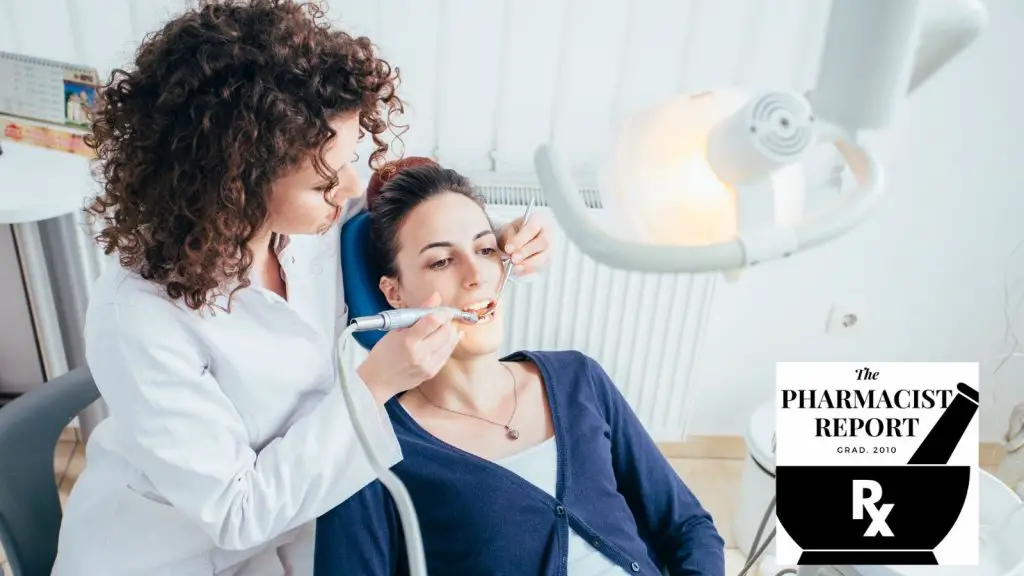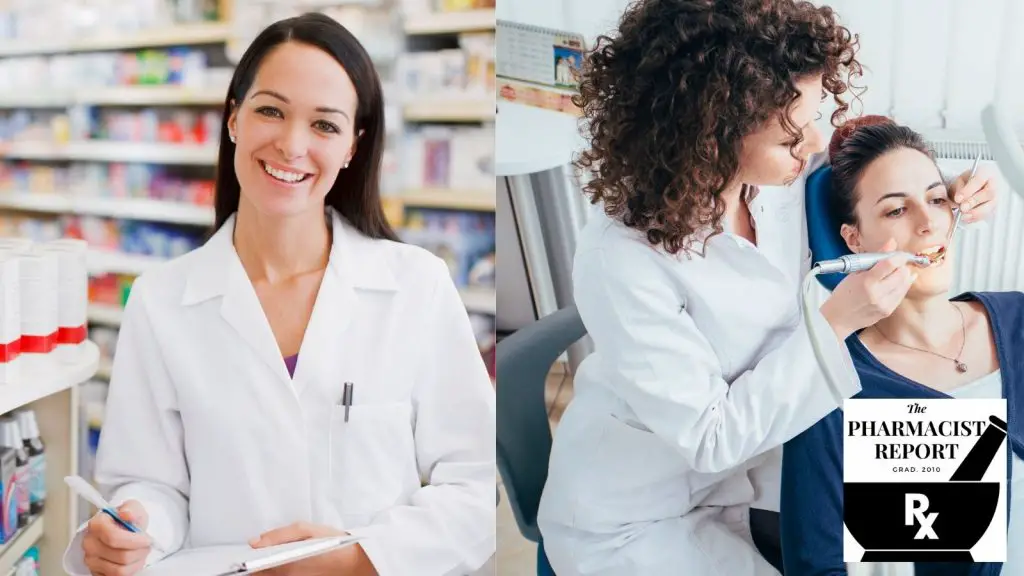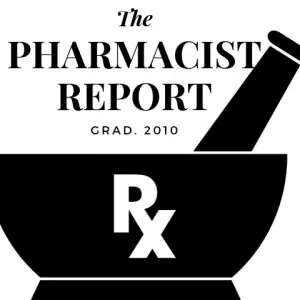So you are confused between dental hygienist and pharmacist job positions, right? Before selecting between these two, it is essential to consider various factors such as duties, responsibilities, salary, qualifications, etc. Knowing all these would provide you an idea of which job position interests you the most.
In this article, we have talked about job duties, responsibilities, required skills, salary, and education requirements for dental hygienist and pharmacist job positions.

Dental Hygienist
Working as a dental hygienist means you will be responsible for so many duties. Your tasks will revolve around initial patient screenings, cleaning teeth, and advising patients on oral health. Dentist and Dental Hygienist are both different job positions. Each state has different regulations regarding the responsibilities of hygienists. Hence, your tasks as a dental hygienist will vary from one state to another.
In the dental office, dentists and dental hygienists work together to meet the oral health needs of patients. As a dental hygienist, you will be working under the supervision of a dentist. Keep in mind that dental hygienists are different from dental assistants. Both are different in terms of job duties, education requirements, salary, etc.
Duties & responsibilities
Some essential duties and responsibilities of dental hygienists include:
- Complete a preliminary exam on each new patient
- Make sure the patient feels comfortable before the examination
- Clean and remove stains, plaque, and tartar from the patient’s teeth
- Apply fluorides and sealants for tooth protection
- Take dental x-rays and perform them
- Teaching patients about proper hygiene strategies and guiding them regarding oral health
- Administer local anesthetics to patients
Education requirements & qualifications
To become a dental hygienist, first, you need to graduate from an accredited dental hygiene school with either an associate degree, a certificate, a bachelor’s degree, or a master’s degree. After you have the degree, you need to obtain a license from the dental board in the state you want to practice. You will have to pass a written exam and clinical exam.
Skills required
Here are the skills and competencies required to become a dental hygienist:
- Manual dexterity
- Compassion
- Use of dental technology
- Health promotion and maintenance
- Infection control
- Interpersonal skills
- Teamwork
- Administering medication
- Self-development
Salary
The salary of dental hygienists varies depending on various factors like education, experience, skills, certifications, etc. According to Salary.com, the average Dental Hygienists salary in the United States is $75,339 a year.

Pharmacist
Pharmacists are healthcare professionals responsible for dispensing medications. Apart from dispensing medications, pharmacists are also responsible for reviewing them. This is important for patients’ safety. Dispensing drugs without reviewing them means the pharmacist is risking the patients’ safety.
Apart from dispensing prescriptions and reviewing them, some other job tasks of pharmacists include managing staff, communicating with prescribers, counseling patients, and more. There are different types – retail, hospital, compounding, ambulatory care, consulting, etc. Depending on your interests and expertise, you need to get into the right pharmacy type.
Duties & responsibilities
Duties and responsibilities of pharmacists include:
- Prepare medicines after reviewing and interpreting patients’ orders
- Dispense prescriptions
- Counsel patients
- Communicate with prescribers
- Ensure patients’ safety
- Work with patients on general health
- Manage staff
- Perform administrative tasks
Education requirements & qualifications
Education requirements and qualifications like certification & licensure are essential when you want to become a pharmacist. The first step to becoming a pharmacist is obtaining a Doctor of Pharmacy (PharmD) degree from a pharmacy program accredited by the Accreditation Council for the Pharmacy Education (ACPE).
After the completion of PharmD, you need to obtain the pharmacist licensure. Depending on your state, pharmacist license requirements will vary. You must pass NAPLEX (North American Pharmacist Licensure Examination) by the North Association of Boards of Pharmacy (NABP). Apart from this, most states also require candidates to pass MPJE (Multistate Pharmacy Jurisprudence Exam).
Skills required
Here the skills required to become a pharmacist:
- Focus on quality
- Productivity
- Analyzing information
- Attention to detail
- Administering medication
- Communication skills
- FDA regulations
Salary
Salary is one of the crucial factors to consider when deciding on a particular career field. In this post, we have compared dental hygienist and pharmacist job positions. If we compare both these job positions in the salary viewpoint, pharmacists make more money than dental hygienists. Your salary as a pharmacist will vary depending on the factors like education, skills, experience, certification, pharmacy type, etc. The average salary of pharmacists in the United States is about $128,090 per year.

Dental Hygienist OR Pharmacist
We didn’t want you to only take our word for it on this matter since it is a big decision. So we went out and scoured the internet to get the opinions of current or past professionals and students in these field. This information was curated from forums, websites, and sub reddits. Nothing has been changed except any spelling or grammar where needed.
Real Opinions
1. JBrL “Both difficult” –
1) Job Stress
2) Salary
3) Respect from the public
4) Difficulty of admission
5) Difficulty of schooling
6) The future of both fields
Pharmacy:
1. Easier to get into
2. ~70% work in retail, a primarily transactional field. Talk to lots of people daily for short periods of time. Can work for 12hr stretches, and work 2 weekends per month.
3. Higher emphasis on pharmacology in education; very little anatomy
4. PharmD has greater breadth of applicability (which is why I’d pick pharmacy)
5. Very little to no operative work
6. Probably less stress overall from job responsibilities.
Dentistry:
1. Higher wage
2. Higher loans and range of debt: can be as high as 500k+ or <100k
3. Almost all make their living from operating on mouth and teeth
4. Less emphasis on pharmacology
5. More respect as a degree than pharmacy. You’ll hear ‘don’t you just count pills’ every now and then. May as well shoot MD if this is an issue for you though.
6. You should own your own practice to really ‘make it.’ Salary can be much higher than pharmacy but has the added responsibility of owning a business. Corporate dentistry = 1 weekend a month or something.
Both are relatively difficult educationally and are suffering from an increasingly competitive job market. Most in both work 40hr weeks and don’t bring it home.
2. JokerSmiles “Dentistry” –
1) Job Stress
Dentistry > Pharmacy
Dentist definitely have more stress as they have to do surgery in a small space and will develop back problems. However since the vast majority of dentists own private practice, they set their own hours and can work 2 days or week or 7 days a week, it all depends on how much you want to make.
2) Salary
Dentistry > Pharmacy
pharmacists make 120K annually, an average general dentist makes 160K…… dental specialists (orthodontists, endodontists, oral surgeons) make 200K +
dentists also have a much higher upward mobility as their success depends on their people skills and how many patients they can get
3) Respect
Dentistry > Pharmacy
dentists are called “Dr. so and so” within their dental office, however outside of their office they refer to themselves as dentists
pharmacists are only called doctors when they graduate pharmacy school, and maybe by volunteers in the pharmacy clinic at which they work.
from my experience, the majority of the public view pharmacists as a glorified cashier.
4) Admission
Dentistry >>>>>> Pharmacy
there is no comparison here, getting into dental school is equivalent to getting into medical school
the average admitted dental student has around a 3.6 GPA, the average for pharmacy is 3.3
there are over 100 pharmacy schools (and counting) and only around 50 dental schools. Less schools = more competitive.
I would go as far as saying that the low tier dental schools are more competitive than UCSF pharmacy.
5) Schooling
Dentistry > Pharmacy
dental students take their 1st 2 years with medical students and spend their last 2 years in the clinic. Moreover, dental students also need to take dental lab at the same time as their classes.
Dentists needs amazing hand-eye coordination and manual dexterity because they provide a service, pharmacy school is more memorization and math.
6) Future
Dentistry >>>>>>>>>> Pharmacy
dentistry is arguably the best healthcare profession right now. pharmacy is a dying career and extremely saturated.
the only negative side to dentistry is the cost of attendance (300K +), however you get what you pay for.
3. Dimeadozenn “Shadow Both” – Here’s the best advice…….both careers have a 6 figure salary both have over 200k jobs in the usa Both are solid jobs….so go out and shadow and determine for yourself……everything else on here is opinionated by others go out and seek shadow experience and decide yourself. You will be fine with either in your life time.
4. Ugaz “Dentistry” – Dentistry is way better than pharmacy today. More autonomy, more money, more flexibility and of course, more respect. People call you Dr..So and So…you are your own boss. If someday you wanna take off…just have some dentist cover for your office.
5. TheEpicFruitCake “I can answer Dentistry” – I guess I can answer the dentistry part more specifically. These are specific to big cities in Texas (Dallas, Houston, Austin, San Antonio). Also, I will only speak of general dentistry, not specialization such as orthodontics, endo, oral surgery, pedo, etc. These specialties provide increased salary, more stress, more respect, additional 2-6 years of residency, and provide more job security.
1) Job Stress – biggest stress comes from owning your own practice. First 10 years are pretty terrible in terms of hours, however, once you have built your practice you are golden. My dentist, who is also my mentor, worked 7 days/week, ~70-80 hours when he first started. Now, at the age of 65, he is open 3 1/2 days/week.
You could also go corporate and just be a worker bee, but nobody is in corporate for very long because there is little room for advancement and there are some ethical issues (or so I hear).
2) Salary – depends.
First 5 years – If you go corporate, here you are looking at ~100k avg and maybe 80k low. Associates pay a little better (110k), however, you need to be really good (most likely need post-doc training like AEGD/GPR).
If you start your own practice you’re most likely in the negative for first couple years. A dentist I shadowed was a fresh graduate and was open 3 days a week and then work as an associate/corporate for the other 4 days to pay the bills and just stay alive. After you get your practice going, your only limit depends on how good you are not only at dentistry but also in business.
3) Respect from the public
Pretty well respected from what I’ve seen. We are primary care so we are seen as primary care providers.
4) Difficulty of admission
If you want to go to an expensive private school, 3.5 and a 20 DAT (90th %tile) is good enough assuming you have decent extracurricular. 400k+ debt however.
In state, for Texas, if you want a competitive shot you need at least a 3.6 and a 21 DAT (95th %tile). ~200k-250k debt.
GPA 3.8 and 23+ DAT (98th %tile) will get you a chance at the top dental schools.
5) Difficulty of schooling
depends. If you want to specialize, you’re going to have to be ranked very high (top 10 in your class). I can tell you from experience (my roommate is a current pharmacy student), dental school is much more difficult. He goes to a top 10 pharm school. Dental students have it way harder. We are in class from 8-5 everyday. More specific breakdown: lecture from 8-12, clinic from 1-5.
6) The future of both fields
pay may lower (if saturation continues), but there will always be jobs. If you want to live in the city, take a lower pay. If you are okay living in the suburbs, there is ample opportunity. Live in the rural area? expect double pay.
Final Summary
Dental hygienists perform tasks like patient screenings, cleaning teeth, advising patients, taking dental x-rays, and more. On the other hand, pharmacists are responsible for dispensing prescriptions and reviewing them. Although both these career fields are focused on helping patients, their duties, responsibilities, earnings, skills, education requirements, etc., are totally different.
If we compare dental hygienist and pharmacist in terms of money and job security, dental hygienist gets paid nicely compared to how little education it requires. On average, pharmacists do get paid more, but its education requirements, licensing, and qualifications are way more than pharmacist job positions.

